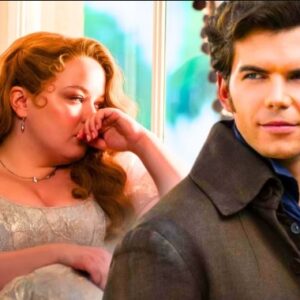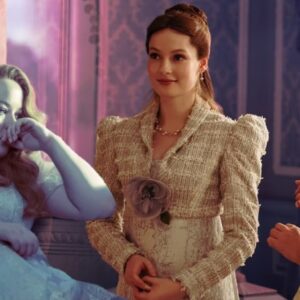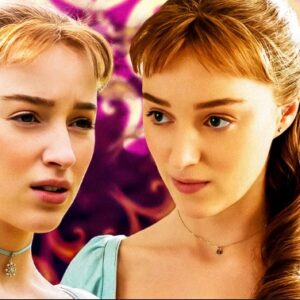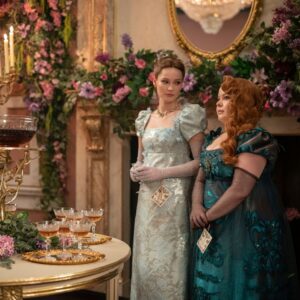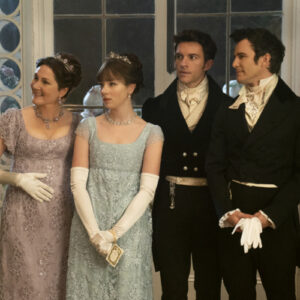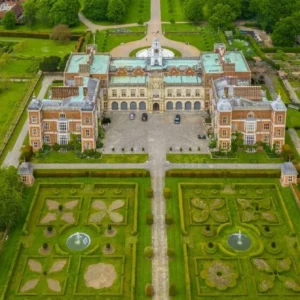
At surface level, the diversity Queen Charlotte: A Bridgerton Story champions is admirable. In the third episode of the series, Lord and Lady Danbury, recently promoted to the titles following the marriage of George and Charlotte which led to Black members of the upper classes being granted peerage, host a ball. Initially, a supercilious group of white ladies decline to attend, but swiftly change their tone when the King and Queen accept an invitation to the event. With royal support, Lord and Lady Danbury instantly garner respect, and the ball is a gleaming success. It is admittedly superficial, but the sight of people of all colours, decked out in glorious eighteenth-century gowns and dancing altogether to a string quartet cover of Alicia Keys’ ‘If I Ain’t Got You’ is a triumphant one. And if nothing else, it is a bold statement that signifies a new era of historical drama, one that makes room for everyone regardless of their ethnicity.
Unfortunately, however, this is a shallow issue, and the series is infused with a hesitancy to delve into deeper territory with the issues of race that it attempts to pose. The suggestion that the marriage of a Black woman to royalty led to the transformation of the position of all people of colour in England overnight is dubious, especially given that even now, in the twenty-first century, we have all been witness to the onslaught of abhorrent racism prompted by the marriage of Prince Harry to Meghan Markle, who is mixed race. Then there is the patent reality of the Britain in which Queen Charlotte situates itself; one in which colonialism was at the heart of British foreign interest, and where the country still partook in the transatlantic slave trade, neither of which the series acknowledges. As historical romance first and foremost, it is not expected that the Bridgerton universe will tackle the complex and sinister politics of empire. But when the show begins to confront race, a gaping hole emerges in which the absence of this discussion is felt, given the colonial background of racism as a phenomenon. By problematising race, and establishing itself within a context where racism exists, Queen Charlotte shoots itself in the foot when it then fails to adequately address debates that it willingly chose to introduce.
So far detached is Queen Charlotte from the period of British history upon which it is loosely based, that it would have been entirely defensible to include people of colour without feeling the need to justify their position. Viewers can, and have, accepted that Bridgerton is a fantasy that bears little resemblance to the real historical milieu from which it draws inspiration. The series is popular for its ability to transport us to a seductive utopian world of desire, scandal, and opulence. There is no reason for this fantasy not to include people of colour naturally, without formulating a half-baked explanation for their presence that leaves a void for the exploration of themes too arduous for a light-hearted, romantic drama.
All this said, I truly did enjoy Queen Charlotte: A Bridgerton Story for its compelling romance and chemistry between its protagonists, and will concede that despite its shortcomings, it marks striking progress in representation within period dramas. I return to the scene at the Danbury ball, interracial couples gliding across the dancefloor, accompanied by the music of a mixed-race woman, and think, this is what historical drama should look like. A glistening portrait of the glamour of the past, that accommodates all and celebrates the diversity of today. If the recent installation in the Bridgerton universe had embraced this as its purpose, it could have a been near perfect execution of the genre.
